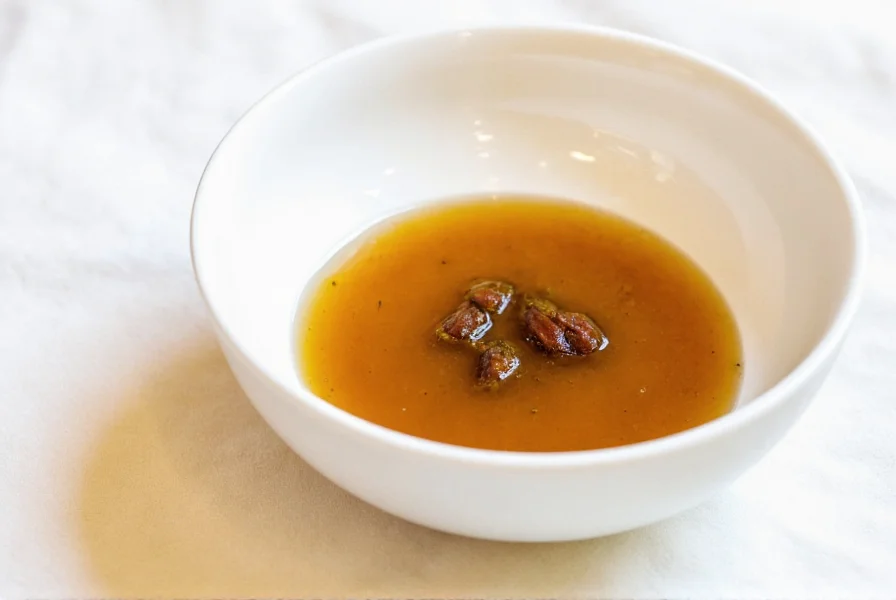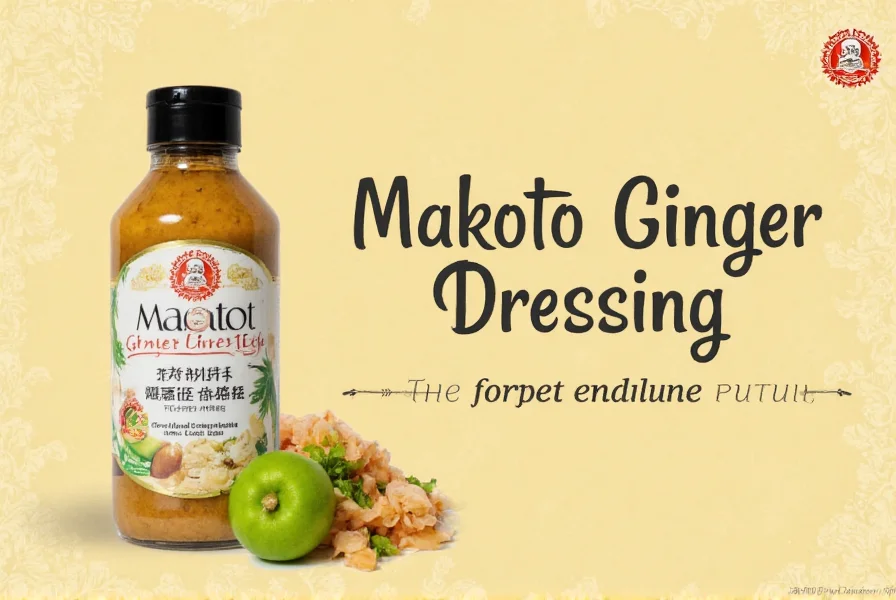Makoto ginger dressing has become a staple in many kitchens for its authentic Japanese flavors and versatile culinary applications. Unlike many commercial dressings that rely on artificial flavors, Makoto maintains a delicate balance of fresh ginger, soy, and subtle sweetness that enhances rather than overwhelms dishes. Understanding how to properly use this dressing can transform your everyday meals with minimal effort.
What Makes Makoto Ginger Dressing Unique
When examining makoto ginger dressing ingredients, you'll notice the emphasis on quality components. The dressing typically contains real grated ginger (not just ginger flavoring), rice vinegar, soy sauce, sesame oil, and a touch of natural sweetener. This combination creates a complex flavor profile that's simultaneously tangy, slightly sweet, and warmly spicy without being overpowering.
What sets Makoto apart from other store-bought ginger dressings is its commitment to authentic Japanese preparation methods. While many competitors use artificial ginger flavor or excessive sugar to mask lower-quality ingredients, Makoto maintains a cleaner ingredient list that reflects traditional Japanese culinary principles. The ginger presence is noticeable but not harsh, making it suitable for a wider range of palates.
Makoto Ginger Dressing vs. Homemade and Other Brands
For those considering makoto ginger dressing vs homemade options, there are several factors to consider. While homemade dressings allow for complete customization, they require fresh ingredients and preparation time. Makoto offers consistent quality and flavor with the convenience of a shelf-stable product.
| Feature | Makoto Ginger Dressing | Typical Homemade Version | Other Store Brands |
|---|---|---|---|
| Preparation Time | Instant | 10-15 minutes | Instant |
| Ginger Quality | Real grated ginger | Fresh grated ginger | Often artificial flavoring |
| Shelf Stability | 6-12 months unopened | 3-5 days refrigerated | Varies by brand |
| Consistency | Batch-to-batch consistent | Varies with preparation | Generally consistent |
Best Culinary Applications for Makoto Ginger Dressing
Understanding the proper makoto ginger dressing uses can elevate your cooking significantly. While it's excellent as a salad dressing for mixed greens, its versatility extends far beyond simple salads. The dressing's balanced flavor profile makes it particularly effective as:
- Marinade for proteins - Works exceptionally well with chicken, salmon, and tofu, tenderizing while adding flavor
- Dipping sauce - Perfect for spring rolls, dumplings, or as a sushi accompaniment
- Stir-fry enhancer - Adds depth to vegetable stir-fries when added near the end of cooking
- Grain bowl dressing - Complements quinoa, rice, or noodle bowls with vegetables and protein
One of the most appreciated makoto ginger dressing recipes involves using it as a base for a quick vegetable slaw. Simply toss shredded cabbage, carrots, and scallions with 2-3 tablespoons of the dressing and let sit for 15 minutes before serving. The result is a flavorful side dish that pairs well with grilled meats or as a topping for tacos.

Creative Ways to Use Makoto Ginger Dressing Beyond Salads
Many home cooks limit ginger dressing to salad applications, but how to use makoto ginger dressing creatively can transform ordinary meals. Try these innovative approaches:
As a sandwich spread: Replace mayonnaise with Makoto ginger dressing on turkey or veggie wraps for an Asian-inspired flavor profile. The dressing's acidity cuts through richer ingredients while the ginger adds a refreshing note.
In grain salads: Toss with cooked quinoa or brown rice, edamame, cucumber, and sesame seeds for a complete side dish that maintains its flavor even when served cold.
As a finishing sauce: Drizzle over roasted vegetables (particularly broccoli, asparagus, or bok choy) just before serving to add brightness to otherwise simple preparations.
Storage and Shelf Life Considerations
Proper makoto ginger dressing storage tips ensure you maintain optimal flavor and safety. Unopened bottles can be stored at room temperature in a cool, dark place for 6-12 months. Once opened, refrigeration is required, and the dressing should be used within 4-6 weeks for best quality.
Always check for signs of spoilage before using, including:
- Unusual cloudiness or separation that doesn't resolve with shaking
- Foul or sour odor
- Mold growth
The dressing's natural ingredients mean it may separate over time, which is normal. Simply shake well before each use to recombine the ingredients.
Nutritional Profile and Dietary Considerations
When incorporating makoto ginger dressing flavor profile into your meals, it's helpful to understand its nutritional aspects. A typical two-tablespoon serving contains approximately 60-80 calories, with most coming from healthy fats in the sesame oil. It generally contains 1-2 grams of sugar, significantly less than many Western-style dressings.
The dressing is naturally gluten-free (verify specific product labels), vegan, and contains no artificial preservatives. The real ginger provides gingerol, a compound with potential anti-inflammatory properties, though dressings shouldn't be considered a significant source of nutrients.

Final Thoughts on Incorporating Makoto Ginger Dressing
Makoto ginger dressing offers a convenient way to introduce authentic Japanese flavors into everyday cooking. Its balanced makoto ginger dressing flavor profile works across multiple culinary applications without requiring special skills or additional ingredients. By understanding its proper uses and storage requirements, you can keep this versatile dressing on hand to elevate simple ingredients into restaurant-quality meals with minimal effort.











 浙公网安备
33010002000092号
浙公网安备
33010002000092号 浙B2-20120091-4
浙B2-20120091-4